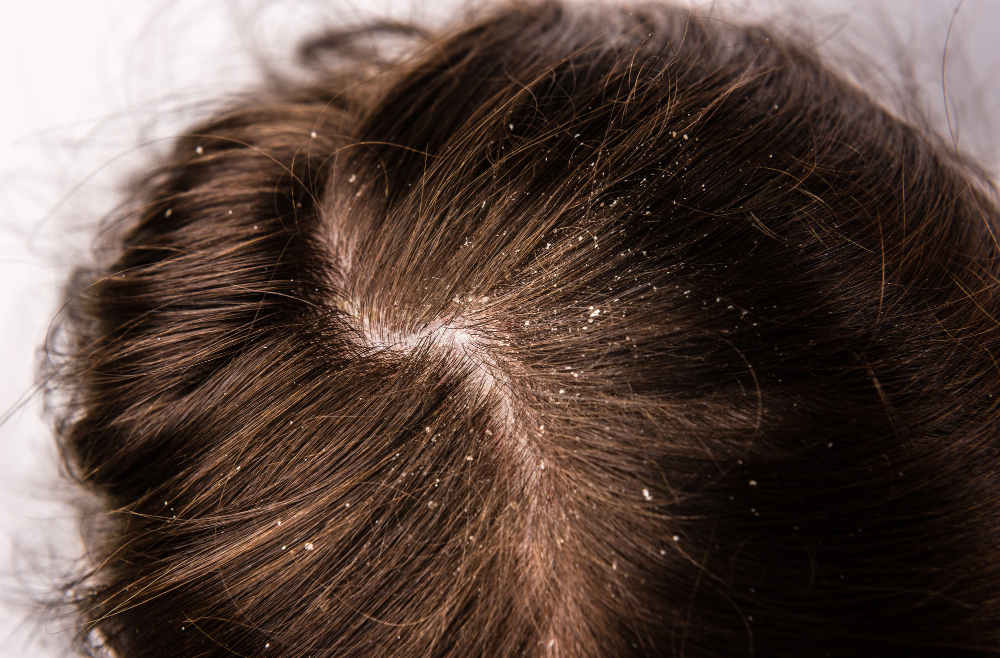Preventing Severe Winter Dandruff
Dealing with the persistent issue of dandruff, especially during the winter months, can be an uncomfortable and often embarrassing ordeal. While many may have tried various remedies without success, understanding the underlying causes and adopting targeted strategies can significantly alleviate the symptoms and provide lasting relief.
Understanding Dandruff
Dandruff, often associated with Seborrheic Dermatitis (SD), is a common condition affecting about half of the population. The most noticeable sign is the presence of white flakes on the scalp, comprising dead skin cells. It is accompanied by itching, which can be particularly bothersome. While dandruff is not a condition that comes and goes, its severity tends to increase during the fall and winter months, a phenomenon attributed to dry air.
Winter Aggravation
The aggravation of dandruff during winter is a common experience. The combination of dry and cold air causes the scalp to lose moisture at an accelerated rate. Paradoxically, the dryness prompts the body to produce more oil, exacerbating the dandruff. As winter sets in, the prevalence of dandruff becomes more noticeable, often starting in autumn itself.
Signs & Symptoms
Identifying dandruff goes beyond the visible white flakes. It often includes greasy or dry scales on the scalp, raised bumps along the hairline in severe cases, eyebrow dandruff, hair loss, and even dry flakes on the skin of the face. These symptoms collectively contribute to the discomfort associated with dandruff.
Effective Remedies
Specialized Anti-Dandruff Shampoo:
The cornerstone of dandruff management is using an effective anti-dandruff shampoo. Opt for products specifically designed to target dandruff, like our Anti-Dandruff Shampoo. Regular use cleanses the scalp and helps prevent the recurrence of dandruff.
Scalp Exfoliation:
Scalp exfoliation is an often-overlooked but crucial step in managing dandruff. Investing in a high-quality scalp scrub can effectively remove dead skin cells, reduce itchiness, and promote overall scalp health. This process is akin to skin exfoliation and helps prevent blocked follicles that can contribute to dandruff.
Nourish with a Hair Mask:
Hair masks, particularly those formulated to combat dandruff, can provide substantial relief. These masks treat, nourish, and condition the scalp, reducing itchiness and contributing to the elimination of flakes. Incorporating them into your hair care routine can enhance overall scalp health.
Healthy Habits
Avoid Hot Showers:
The temperature of your showers plays a crucial role in scalp health. Extremely hot showers can strip the natural oils from the scalp, leading to excessive dryness and flakiness. Opt for lukewarm or cold water to maintain the scalp’s moisture levels.
Regular Hair Brushing:
Stimulating the scalp through regular brushing or combing is a simple yet effective practice. This routine promotes blood circulation, helping maintain the scalp’s moisture level. It is advisable to brush hair when it is damp, not wet, to prevent breakage.

Scalp Moisturization:
Combatting dryness is essential in managing dandruff. Hydrating products and hot oil massages can replenish moisture to the scalp. Additionally, consider incorporating steam with a hydrating hair mask for an extra layer of nourishment and hydration.
Stay Hydrated:
The dryness associated with winter can contribute to overall dehydration, affecting the scalp. It is crucial to maintain hydration levels by drinking at least 4 liters of water daily. Proper hydration supports skin health, including the scalp.
Healthy Diet:
The adage “you are what you eat” holds true for scalp health. Including protein- and omega-3-rich foods in your diet, such as nuts, legumes, fish, mushrooms, and soy, can significantly boost scalp health. A well-balanced diet with ample greens and roughage is essential.
In conclusion, managing dandruff during winter involves a multifaceted approach that addresses both external care and internal factors. Regular use of specialized anti-dandruff products, coupled with healthy habits and a nourishing diet, can go a long way in preventing and alleviating the discomfort associated with winter dandruff.
By keeping the scalp clean, hydrated, and moisturized, individuals can enjoy lasting relief from this common winter woe.




